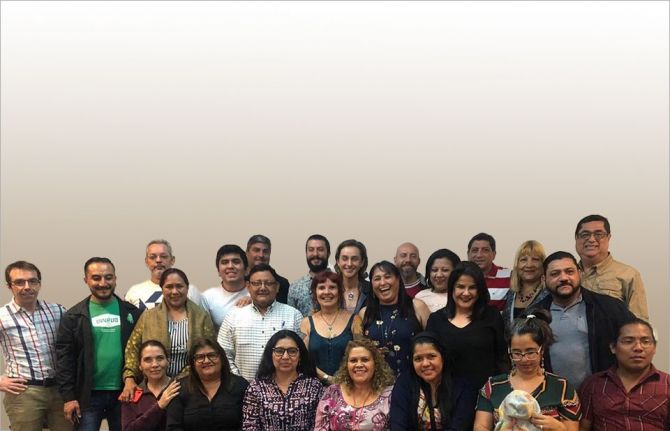



Feature Story
Multicountry People Living with HIV Stigma Index 2.0 study launched in Latin America
05 October 2021
05 October 2021 05 October 2021The Latin America and Caribbean region has deep and widespread inequalities and includes countries that are more unequal than those in other regions with similar levels of development. This affects access to health and HIV services, particularly by key populations. Social and structural barriers are important drivers of inequalities.
To understand these social and structural barriers better, Alianza Liderazgo Positivo y Poblaciones Clave (ALEP) is leading the multicountry People Living with HIV Stigma Index 2.0 study in four countries in the region: the Plurinational State of Bolivia, Ecuador, Peru and Nicaragua. Another five similar studies funded by the Global Fund to Fight AIDS, Tuberculosis and Malaria (Global Fund) and in coordination with civil society, the United States President’s Emergency Plan for AIDS Relief, Global Fund principal recipients, the United Nations Population Fund and UNAIDS are independently under way in El Salvador, Honduras, Guatemala, Panama and Paraguay.
The results of the joint initiative are expected to strengthen regional and global efforts to eliminate HIV-related stigma and discrimination through community-centred policies and programmes that are informed by evidence.
“For the first time since the first People Living with HIV Stigma Index study in 2008, nine countries in the same region will be conducting the study in coordination and within the same time frame. This is unprecedented and will be instrumental in addressing HIV-related stigma and discrimination both at the country and regional level,” said Rodrigo Pascal, ALEP’s People Living with HIV Stigma Index 2.0 Study Coordinator.
The People Living with HIV Stigma Index 2.0 gathers evidence on how stigma and discrimination impacts the lives of people living with HIV, including key populations. It was developed to be used by and for people living with HIV, including key populations, and was created to support the principle of the greater involvement of people living with HIV, under which networks are empowered to lead the implementation of the study. The study is a first, as it is the first time that networks of people living with HIV have coordinated action with networks of key populations to promote human rights and access to comprehensive and differentiated HIV care in Latin America.
“The motivation I have is to be part of the solution regarding the challenges imposed by stigma and discrimination, which are the main problems we, people living with HIV, are confronting since the beginning of the epidemic,” said HIV activist Gracia Violeta Ross Quiroga, who is coordinating the implementation of the stigma index study in the Plurinational State of Bolivia. “I have hope in this research because it is coming from the community, and such responses have proved to be the most effective in the history of HIV.”
ALEP is an innovative effort that combines the leadership, vision, capacities and strengths of regional networks in the Plurinational State of Bolivia, Colombia, Costa Rica, Ecuador, El Salvador, Guatemala, Honduras, Nicaragua, Panama, Paraguay and Peru. It works in partnership with Country Coordinating Mechanisms where there is a Global Fund programme in place, UNAIDS and the Pan American Health Organization.
“This is a solid example of how peers are contributing to their own communities while tackling key intersecting issues, such as human rights, stigma and discrimination, and other structural barriers. It’s essentially by communities, for communities,” said Guillermo Marquez, the Senior Community Support Adviser for the UNAIDS Regional Support Team for Latin America and the Caribbean.
Watch launch event (in Spanish)



